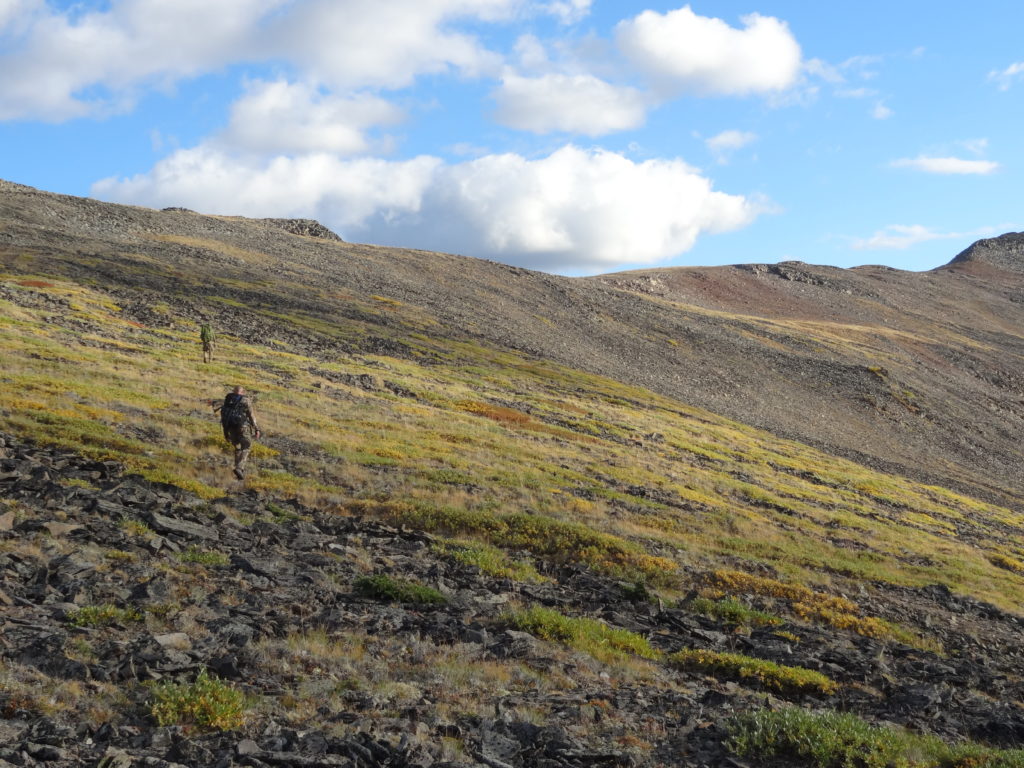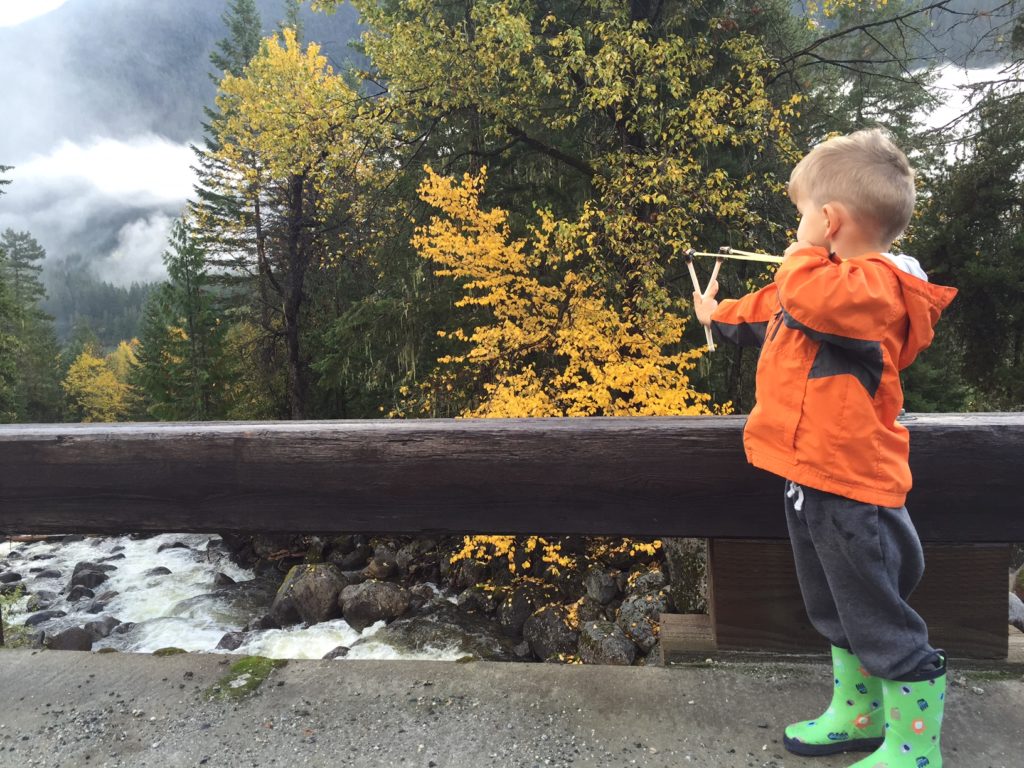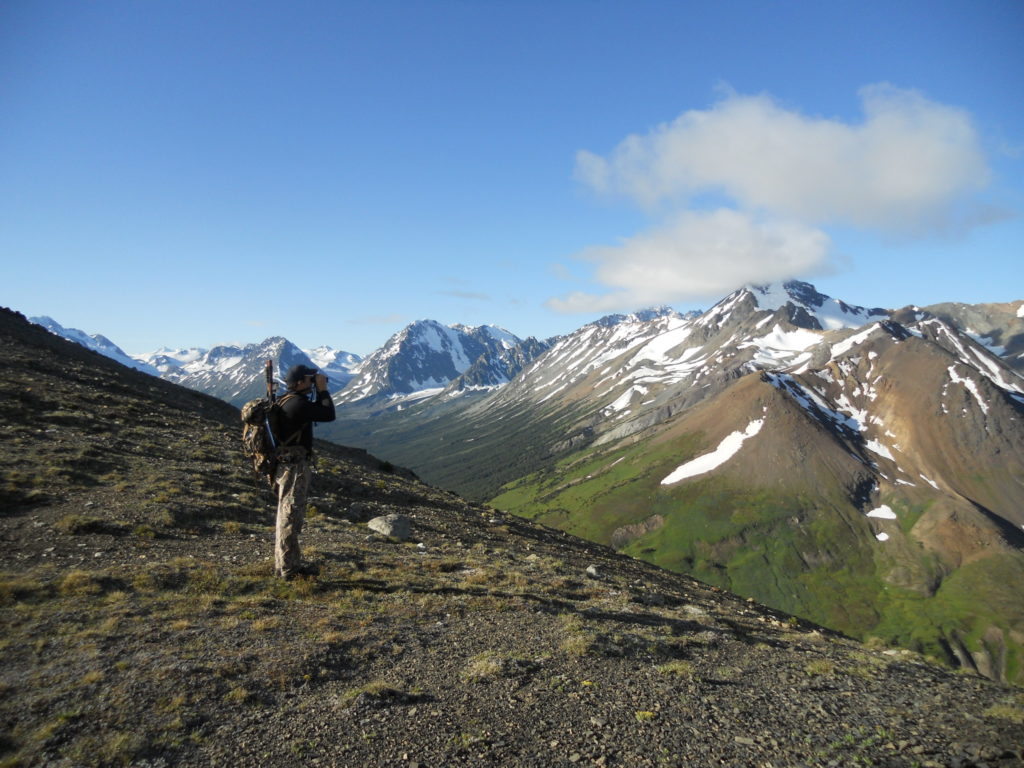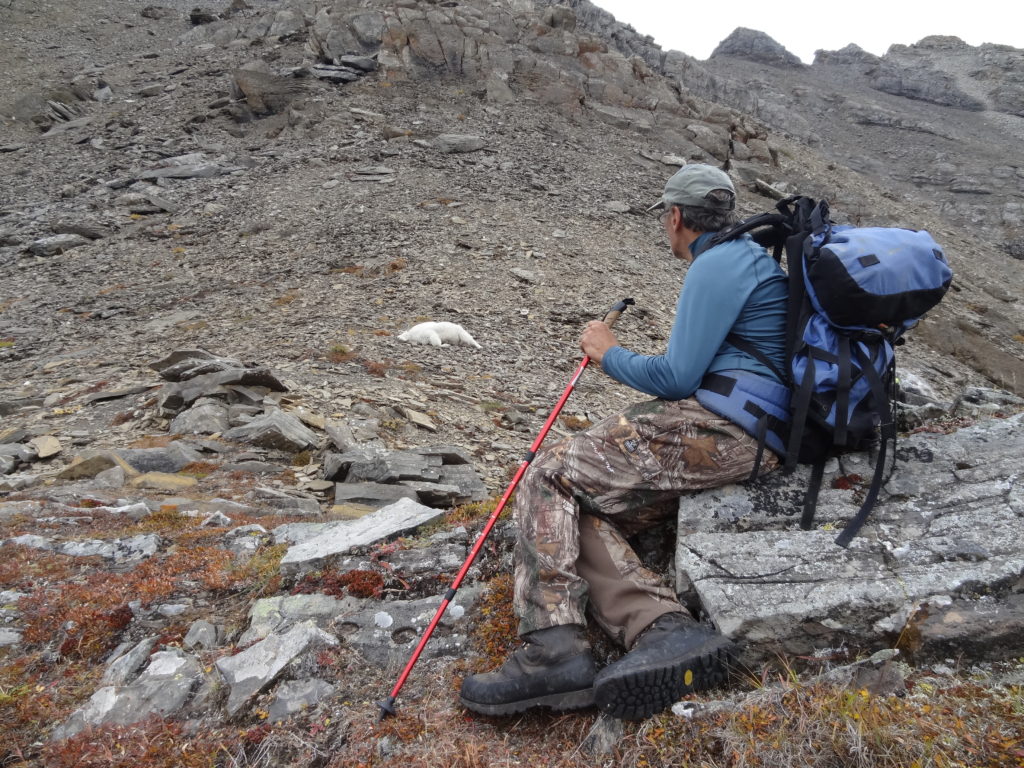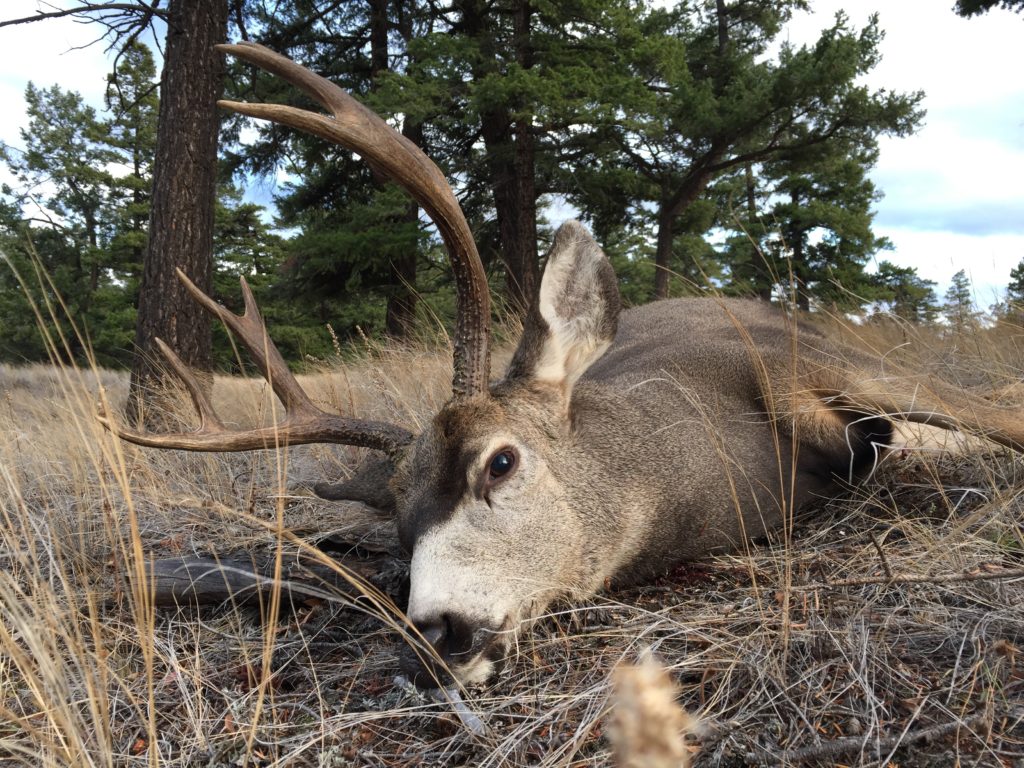“So, you’re a hunter. You catch anything lately?”
I live in the city, and in the city, this is the question I get asked most often once my dark secret has been uncovered. I used to try and clarify the subtle nuances of words like catching and harvesting as they actually relate to what we do. More recently I’ve reverted to the direct approach: “Well, I didn’t catch much. Killed a nice mule deer buck though.”
I’d like to talk about killing as it relates to hunting. Please hear me when I say that this isn’t another attempt to propagate an overly-macho vision of the great white hunter. There’s enough of that to go around. Rather, allow me a few lines to explore what, to me, ever since childhood, has always been a curious and—at times—disturbing paradox. I like hunting (that’s a magnificent understatement), and hunters kill. At times in my life, the moral dilemma of that reality has consumed me.
There is timeliness to this article that makes it particularly relevant, especially for those of us in more urban locales, where a unique phenomenon has taken place. Long vilified by the more “cultured” citizens of our society, hunters have recently enjoyed renewed public interest (possibly even attraction?) that centers on the desire for an organic, local diet and a healthy dose of the back-to-nature mentality. The minor glitch in the attractiveness of wandering the virgin woods in search of healthy meat is the part about pulling the trigger and taking life. Hence the whitewashing of hunting, and the introduction of words like ‘harvesting’ and ‘taking’ game that allow the pursuit of game to be cast in a more politically correct, sanitized light. This is, at the end of the day, simply a culturally-adopted marketing ploy. Farmers harvest carrots. Hunters kill animals. When we reduce the killing of animals to the harvesting of foodstuffs, we take away the dignity of the animal and its life. We reduce it to a shrink-wrapped package that could just as easily have been pulled from a shelf, rather than a wild thing that has spent years surviving by hook and crook. But I’m getting ahead of myself.
Let’s dig in to this a little deeper. For those of you hoping for a more exhaustive dissertation on the subject, you’re going to be disappointed. I’m not going into the ethics of killing animals vs. people, or the whole live-and-let-live questions. I’m simply trying to answer a few questions that have been rattling around in my own brain for far too long.
One more note: on the off chance that some of you reading this are vegetarians on ethical grounds, I applaud you. You probably disagree with the fundamental reasons I’m going to present below, but at least you have the decency to put your money and actions where your mouth is.
Hardwired to Pursue
The first animal I killed was a chipmunk. He lived in the woodpile behind the cabin we had rented at a fishing lake, and I chased him for days. The chase consumed me, and was all I thought about for days. Goodness knows it wasn’t about the meat. Boys (and some girls) chase things; it’s how we’re wired. When I finally gathered the patience to wait him out, I caught up to him between the woodpile and the closest tree. I shot him with my Russian .177 pellet gun, and shot him badly. I was stunned; the anticipation of success that had been building for days erupted in a flood of regret, confusion, and even tears. Finish the job, my father advised, and it took everything in me to put another pellet into the poor, struggling body.
My first observation is that the act of killing relates to being part of a pursuit and not as an end in itself. This pursuit is something which is deeply ingrained in the human condition, as are the feelings of sorrow and empathy when we do kill. Since the days of the caveman, we have felt an insatiable desire to pursue wild things. As much as we say it’s about the meat, or the bonding experience, or the connection to nature (all of which can be accomplished in other, much more convenient ways), the reality remains that we were designed to pursue, to compete, and to subdue. Watch a child chase their first gopher, or catch a butterfly in a net, and you get what I mean.
I realize that this in itself is a shaky justification, because we all know that there are other things equally ingrained in our human minds that aren’t justifiable by anyone’s standards. Watch the lengths to which my two-year-old son will go to wrestle a particularly desirable toy from another child and you get what I mean. I think an important distinction here however, is that we do not kill for killing’s sake, but rather because it is part of a larger pursuit. It represents the conclusion to something, and without the conclusion, the pursuit simply isn’t the same. The simple fact is that that when we as human beings take on a task, challenge, or journey, it is unfulfilled unless fully concluded. Jose Ortega y Gasset offers up a similar explanation when he says, “We do not hunt to have killed; rather, we kill to have hunted.” This doesn’t make the questions go away, but acknowledges that when we commit to picking up a weapon and going after game, the conclusion to that pursuit is the crashing finality of taking the life of an animal. Hunting is a difficult pastime, for a number of reasons, and so over the years we have taught ourselves to be happy with the fact that the pursuit does not always result in “success.” The fact is that a hunter must bring home game, at least once in a while, to have hunted. It’s a simple reality of the equation that involves pursuit, a quest, and the resolution of it.
Killing Is Part of Nature
Another observation that I will make, is that while killing animals might make us uncomfortable, let’s not forget the way the world around us works. Death is a fundamental part of nature. Those of you who grew up watching nature shows on TV remember that the gruesome scenes of lions tearing apart a buffalo have only recently begun to be included in final edits. Nature is brutal, and involves the taking of life on a daily basis. What we often ignore as humans is the basic tenet that we are a part of this system. We kill when we build homes, we kill when we purchase another vehicle, we kill when we pull a steak from the grocery store refrigerator. Knowledge of the direct consequence has simply been conveniently removed. We have white-washed the habitat destruction; the systemic removal of genetic diversity from our planet by carefully constructing systems that allow us to distance ourselves from the real happenings. At the very least, the hunter who picks up a rifle and does the deed himself takes direct responsibility. The position of the hunter acknowledges our place within the food chain, not outside of it. In taking this place, we have more often than not become more aware and better advocates for the animals we pursue. We have seen them in close quarters, we know what impacts their way of life, and we know what is most needed to support their continued existence. The fact that the majority of conservation efforts underway today are the direct result of hunter efforts should not go unnoticed.
Do We Enjoy Killing?
I’ve managed to make it a fair ways into the subject matter while still skating around a fairly thorny question. Do we as hunters actually enjoy the act of killing, and if so, what does that say about us? This is going to be a very personal question, depending on who you talk to, so I’m going to take the license to answer only from my own experience. My observation is this: that no matter how many times I have killed, there is always a sense of remorse, trepidation, and profound connection that overwhelms me when I walk the final few feet up to an animal from whose body I have taken the life. I’m going to venture out on a limb here and suggest that many of the other hunters I have observed in similar situations feel the same way. It’s written all over their faces. Once the initial euphoria at having completed the hunt dies down, the weight at having taken life slowly settles in. An interesting side note to this whole investigation, is the fact that killing with a rifle often allows the separation of these two feelings or experiences by several hundred yards. The pulling of the trigger, and the sense of accomplishment after seeing the animal go down, are far different feelings from those that occur when you walk the final yards up to that animal. All this is to say: when I kill, it’s a big deal, and not one I’ll ever take lightly.
How, Then, Shall We Kill?
We need to recognize that for non-hunters in our society who do eat meat, the biggest aversion to what we do is the actual act of killing. And as much as that aversion might be a personal one due to a lack of exposure to this way of life, or just personal inclination, I suspect for many individuals it might equally be the result of what they have seen or what they perceive this act to be about. How we kill matters, and matters an awful lot. Respect is key, and I realize that means a lot of things to a lot of different people. I suggest that if we really value the natural world the way we say we do, that should be reflected in our methods and process.
I’m going to assume that everyone is on the same page when we talk about the need to kill respectfully and humanely. The nuances of that discussion are best kept for another day. What doesn’t get talked about as much is what happens after the pulling of the trigger. How we talk about our hunts, the photographs we take, and the experiences we share are ways in which we honor or dishonor the killing an animal. People are watching, and the last thing we need hitting the internet is another image of camouflaged dudes sitting triumphantly on bloody carcasses (tongue hanging out) in the back of a pick-up truck, a Lucky Lager in one hand and .338 in the other. This is harmful to our message and our image.
I smelled the old four-point long before I saw him. His musky scent hung heavy in the timber, and when I caught him sliding between the fir trees, it wasn’t a surprise. He hadn’t seen me, and so I had time to carefully count all four tines on his left side. The gun came up, and I had a rare moment of actually being able to stop, to step back from the pre-conditioned routine and be present in that moment, to think about what was about to happen. Then the bullet was on its way.
The buck took the bullet through the top of the lungs, and I watched as he ran 100 yards before his legs gave out. I held a wild squirrel in my hands once and I could feel his heart running a mile a minute; I could see the desperation in his eyes as they darted here and there, searching for an escape. When I walked up to that old buck, his head was still up, and in those large, amber eyes I could see that he had accepted his fate; he knew this was the end. There was no escape here, even though his eyes were fixed on me as I closed the last few yards and lifted my rifle again.
Though he was well on his way to dying, I gave him the dignity of putting another round through the base of his skull that dropped his head to the forest floor. Rarely are we so close to death, human or animal, that we can watch the light leave someone’s eyes, but I saw it here, fading from those amber orbs, losing their depth, slowly glazing over, and reflecting the world around them. It was a quiet moment, and I was glad to be alone. The euphoria of having found a legal buck after days of searching had slowly disappeared.
I sat down next to the body and placed my hand on its chest. The heart was still beating, still pushing blood through the buck’s system, no longer with the staccato regularity of a living thing, but with the finality of something which now has a defined end. Each pulse came weaker and weaker, until it became imperceptible. I then lifted my hand from his body, the hair of his hide no longer returning automatically to its place. The buck was dead, and with all that had transpired over the last few minutes, and days, I felt the weight of privilege and responsibility on my shoulders more than ever before. I’d taken a life, and somehow through a logic that will never be fully defined, I had taken my place in an ancient order, in a world whose imperfect systems require that death be a part of living.
I’ve spent the better part of my life roaming wild places, and very rarely have I felt so fundamentally connected; felt so much like I belonged. Hunting is killing, and I am forever grateful for the lessons this pursuit has taught me about life, death and our place in a world increasingly disconnected from the realities of the Circle of Life.


